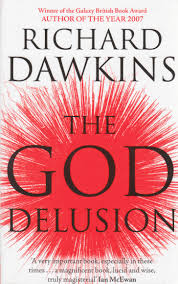Who made God? Every semester students ask me this question. Is trying to answer this even possible? Is it even logical to try to answer it? In this post, I share what I learned these past 20 years with this question.
Now this is a fair question. Lets give the skeptic the respect he longs for and give him an answer. He may not like it, but at least he will appreciate the honesty.
This question is the “central argument” of Dawkins’s best selling book the, God Delusion. If a complex world needs a designer, then he must be just as or more complex and thus he needs a designer too. On page 157-158 Dawkins writes:
This chapter has contained the central argument of my book, and so, at the risk of sounding repetitive, … One of the greatest challenges to the human intellect, over the centuries, has been to explain how the complex, improbable appearance of design in the universe arises. The natural temptation is to attribute the appearance of design to actual design itself. In the case of a man-made artefact such as a watch, the designer really was an intelligent engineer. It is tempting to apply the same logic to an eye or a wing, a spider or a person. The temptation is a false one, because the designer hypothesis immediately raises the larger problem of who designed the designer. The whole problem we started out with was the problem of explaining statistical improbability. It is obviously no solution to postulate something even more improbable.
First, Dawkins is assuming that the design we see in the biological world, that we cannot deny, is only apparent design. But the million dollar question before us is, “what is the difference between real design in nature and just the appearance of design?” Atheists need to address this issue. Randy J. Guliuzza, P.E, M.D wrote…
Claiming that the purpose of an eagle’s wing cannot be known and that the synchronized movement of all its precisely fitted parts is only an “illusion of design” is a perception contrary to real external stimuli. How much better could scientists—set free to conclude design when they see design—approach research when released from misconceptions that flow from invalid, yet firmly held, reasoning constricted by naturalism?
Second, theologians who Dawkins should read if he wishes to debate theology, have said for centuries that asking “who caused the designer, or God” is like the question, “what is the smell of the color green?” or “what does your smile weight?” It is a category mistake at the sophomore level.
It cannot be answered. Again to ask who made God is like asking “what size shoe does the bachelor’s wife have?” A nonsense question cannot expect a sensible answer.
Third, If there is a God, then God would be the uncreated creator. He would be what Aristotle called “The unmoved mover,” or the uncaused cause. God is by definition, uncaused. He is necessary, everything else is contingent, in order for anything to exist, there must be a necessary thing that was before anything else.
Let us always ask questions of the questioner. The person is coming to this objection with a presupposition that all things must have a cause. Its a pseudo-question, for God, if he exists, would not have a creator or a source. Again, its like asking, “how heavy is madness?” or “what size is a square circle?”
So since God is the first cause, the uncaused being, the necessary absolute without a beginning, asking what caused God is like asking “what caused the uncaused being, the necessary absolute without a beginning?” Its nonsense to even try to answer it because this is a nonsense question.
Theologian R.C. Sproll said that “God is not caused because God is not an effect. Only things that are made are effects.”
Forth, even if you don’t think this answer is convincing. One should not dismiss the God hypothesis because of it. You need a better argument or assertion than that. Take for example this image on the screen before you, if I asked “how can you see the images on this screen?” And you said “the lens in my retina focuses light through my vitreous humor, then it receives the image that my cornea focuses through my eyes’s internal lens and transforms this image into electrical impulses that are carried by the optic nerve to my brain. (See Eyes for more).
But then I asked, “how does that work, explain it to me!”….and you said, “ahhh I don’t know.” Does that mean I can dismiss your previous answer that your eyes can see this image? No. You don’t need to know how the retina sees this image to know that it sees it. In the same way, I don’t need to know how God can exist as a necessary, causeless being to know he is the creator. It is at least a plausible, not just a possible, conclusion.
At the end of the day, if God is the ultimate judge I will be answerable to him and not to who made him.
Finally, how can some atheist who complain that God must have a cause to make sense, accept the absurd thesis that the universe came from absolutely nothing? See my blog on “nothing” here.
Read the words from the ancient book of Psalms. (Psalm 90 :2)
Lord, you have been our dwelling place1
in all generations.
Before the mountains were brought forth,
or ever you had formed the earth and the world,
from everlasting to everlasting you are God.
Still does not make sense? Try these this short video to explain what I could not 🙂
Does that help? If not, lets try this with the “End of Atheism” short video below..enjoy all 7 minutes …
If there is a God, then that God would of necessity exist. His non-existence is impossible as would his creation.
What do you think?





Any questions? Feel free to ask! I’m here and ready to engage.
Looking forward to your feedback!!
I find it funny how some one that is trying to explain who created God, doesn’t explain anything. that is why people are confused about this same question. this guy just did what many pastors try to do, but come back to point zero and leave the people still confused. I did not understand anything he said, did you?. The answer is very simple, God was created by his father and so forth. “as God once was, man now is and as God now is man may become”. If you need more info about this phrase let me know.
Hello alwaysNeutral.
Please do explain what you mean and what your source of information is on God once being a man? Is it a legitimate authority and why should we believe it? We need more than just a feeling the heart of course! Our hearts are highly deceptive and used by the elites of culture to manipulate us–the less informed public.
Also, does this not just push the question further? Who made God’s god to an infinite regress?
Thanks much!
Khaldoun
I do not know Dawkins reasoning on the complexity but I assume he is more intelligent than to make this type of logical mistake. I also do not understand why the videos are so long and always quote design more than cause.
In my mind, we, as cognitive beings are causal (we always look for a reason why things happen in the physical world). On a large scale, as we observe it, our universe also appears causal where each event will (in our causal reasoning) have a cause.
At the beginninng, there are two options,
1) If the causal logic holds down to the Planck distance, on a quantum scale or smaller and at the highest energy intensities before the inflation of the universe (or before the gizmos that preceded it), then there must be an Ultimate Cause, such as God
2) If the causal logic as described above does not hold and reality is not causal at singularities or at quantum movements, then we do not know
As a causal being I have an affinity to adopt the first reasoning, and hence for me it is plausible that an Ultimate Cause, God,, exists. I do accept however that some people who do not accept that there is an Ultimate Cause adopt the latter reasoning.
Therefore, Dawkins can logically not convince me and neither can I convince him. As we do not know the causality at singularities our reasoning is equally logical and plausible.
In addition, when one accept the Ultimate Cause argument it is reasonable to believe in the existence of a God. Any open minded atheist should accept this logically.
The beauty of the causal reasoning is that one can have a glas of wine with an atheist instead of engaging in endless and fruitless discussions. As a believer one also has not to spend time to proof the existence of God based on observations or experiences, because God has been logically assumed at the beginning. The huge, life long task then remains to get to know God.